Coronavirus: Fears over pupils missing out on online learning
- Published
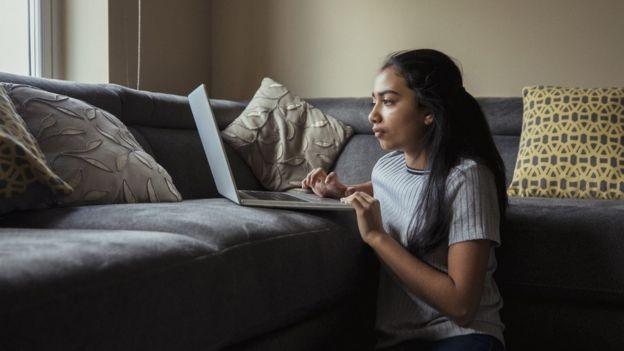
Thousands of school pupils in Scotland may be missing out on online learning at home, new figures suggest.
More than a quarter of pupil accounts on the main school learning portal Glow were not recorded as having been accessed last month.
Parents' groups have raised concerns that many children are disadvantaged when it comes to online learning.
But Education Scotland said more pupils may be using the system than the figures suggested.
Critics said not having a definitive account of who is using online learning systems, and how often, was worrying given schools are set to move to a blended learning model of education after the summer break.
Glow is a key plank of Scotland's digital learning strategy, used by 27 of the 32 local authorities.
Each child is given a username and password, which then gives them free access to a range of online resources such as Microsoft Office and Teams or Google Classroom.
In March, when lockdown was introduced, there were 412,313 active users but this had apparently dropped by more than 60,000 in May.
Education Scotland figures obtained by BBC Scotland show that last month 351,905 pupils were registered as having used the Glow system, out of 489,987 active accounts.
The education standards body said the actual number of Glow users would be higher because some pupils would be accessing the system via desktop or mobile apps which do not register repeat visits in the same way.
However, it was unable to give a figure for how many pupils might fall into this category.
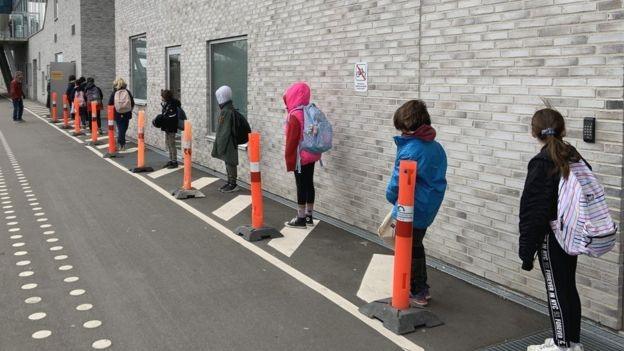
Social distancing measures will be in place at schools from August and pupils will receive a mix of ordinary classroom learning, online learning and homework
A spokesman for the Better Than This campaign group, which is pressing for an increase in face-to-face teaching from August, described the lack of clarity on usage as "astonishing".
He said: "The horrible truth is that nobody really knows what is going on.
"Logins to the Glow network are not evidence of work being done or completed.
"We know that some councils have over 30 different learning platforms being used, there is no proper data available on any of them."
He added: "The 'blended' nature of learning is being promoted without any real evidence on how effective or widespread online learning is."
Home learning struggles
A survey of 4,000 people taking part in a Zoom call organised by the National Parent Forum of Scotland on Wednesday found 62% of respondents said they had not been given any online lessons by their children's school.
Eileen Prior, executive director of the Scotland-wide parents' council organisation Connect which has had more than 7,000 responses to its surveys during lockdown, said: "Parents and carers are telling us loud and clear that online learning is a problem for many families.
"No or limited internet access, a lack of suitable devices or unfamiliar platforms, children (and parents) are not used to online learning and are struggling.
'It seems surprising that, given how sophisticated internet analytics and marketing is nowadays, that detailed information and analysis are not available for Glow as a national learning hub."
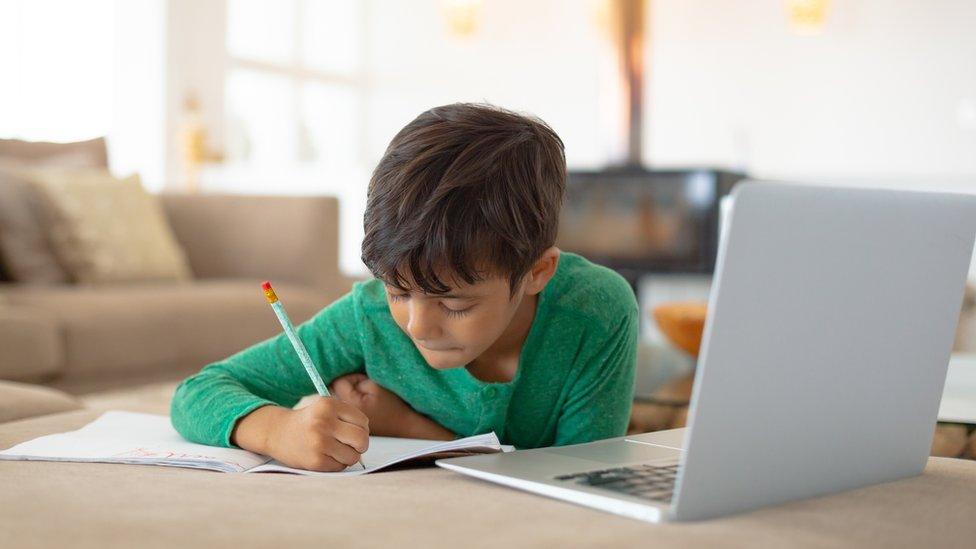
Glow is the biggest online learning portal used by schools but most use a mixture of resources
BBC Scotland contacted three of the largest councils - Fife, Glasgow and Edinburgh - but none had a centrally held record of how often its pupils are engaging with online learning material.
Five councils - covering about 131,000 of the 697,989 primary and secondary pupils - do not primarily use Glow and have other online learning systems in place.
The schools in local authorities with Glow will also use other digital resources.
A spokesman for Education Scotland said: "Glow is the national online learning environment which is freely available to all learners and teachers in Scotland.
"Glow is being used to great effect across Scotland with 258,000 users in just one day, the week that schools closed."
The Scottish government has earmarked a total of £30m to "support digital inclusion" and £9m will be spent on a programme for disadvantaged children to supply 25,000 laptops with internet connection.
In addition, learning hubs for vulnerable children and key workers which opened up at the start of lockdown will continue over the summer.
'Emergency response needed'
Meanwhile, former first minister Jack McConnell has called on the Scottish government to perform a U-turn on its plan for blended learning in schools or face "a scandal that the country will take a long time to recover from".
Lord McConnell told BBC Radio's Good Morning Scotland programme that a range of options should be on the table for August.
He also said an "emergency" response for education was needed in the same way Covid-19 prompted major intervention to bolster the NHS and the economy.
And he warned that public and private schools must be on the same wavelength.
Lord McConnell said: "If it turns out in August that those who can afford to pay for schools are getting a full-time education and those who can't and go to the local comprehensive school or local primary are not getting a full-time education, that will be a scandal for Scottish education."
- Published22 June 2020
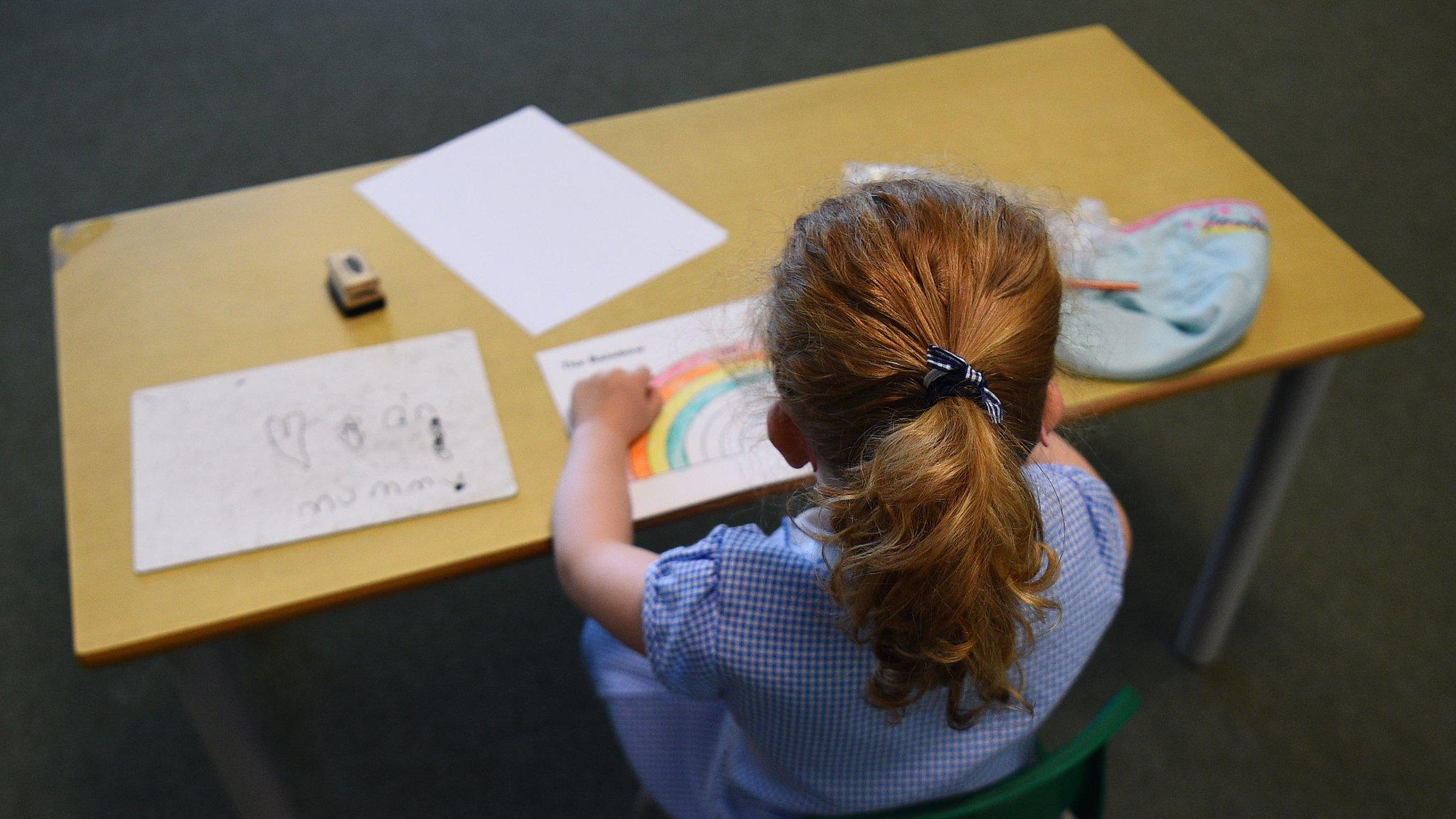
- Published21 May 2020
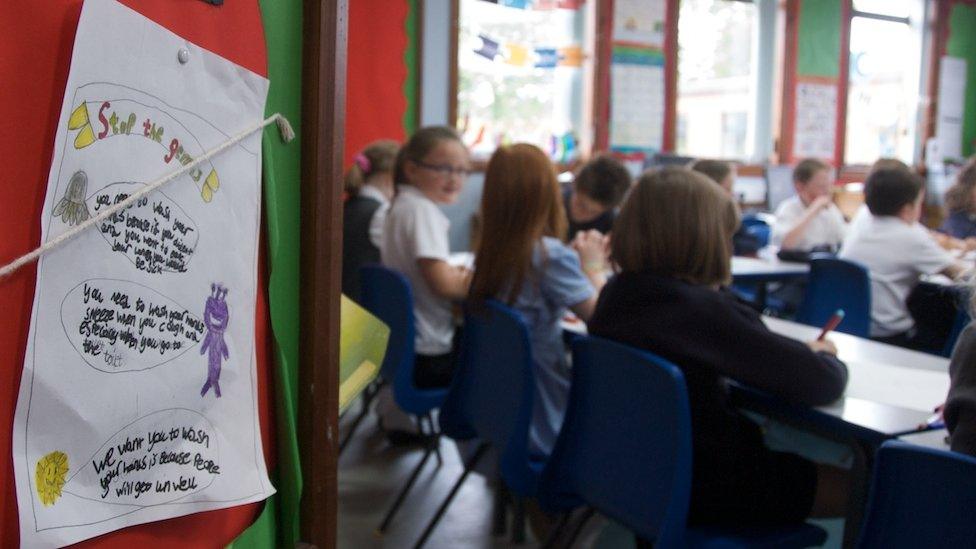
- Published11 June 2020
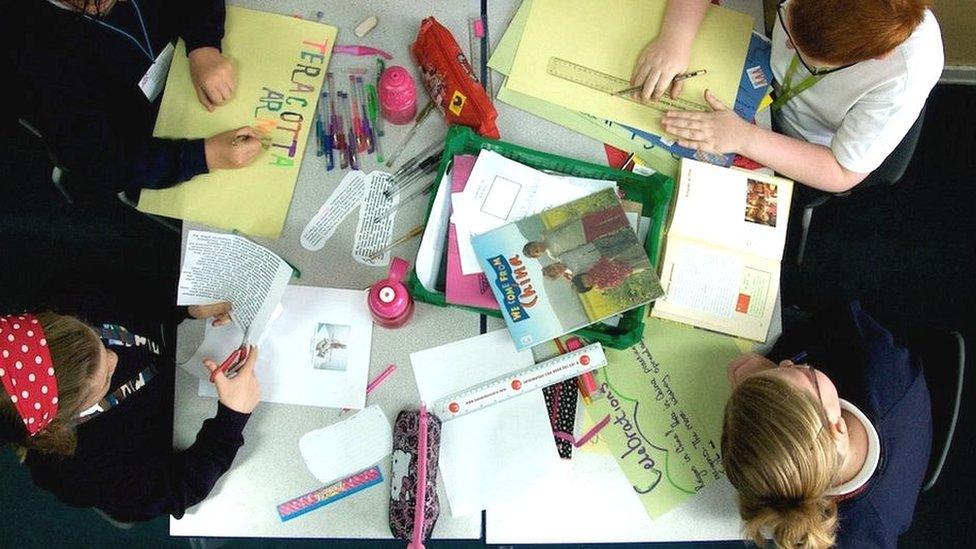
- Published22 May 2020
